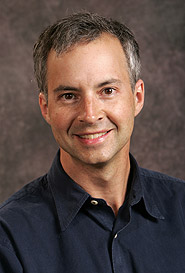Berkeleyan
Opinion
Deans, chancellors, and academic freedom
![]()
| 19 September 2007
The central fact in the Chemerinsky/Drake controversy is simple: UC Irvine Chancellor Michael Drake withdrew an offer of the deanship to Professor Erwin Chemerinsky because Chemerinsky insisted on commenting on matters of public concern at the heart of his scholarship. Chemerinsky was, effectively, punished for doing precisely what every member of a university faculty should be encouraged to do. Drake’s action was the clearest possible case of a university official flouting basic values of academic freedom. The swiftness of the national consensus condemning the decision, among liberals and conservatives alike (including many law-school deans), gives measure to its error.
To his credit, Chancellor Drake has quickly swallowed his pride and reversed course. With luck and some creative forgetfulness toward the past, the Bren School of Law at UCI will be on a new course toward a successful launch.
As the dust settles, however, I think it is worth recalling some basic points about academic freedom in the University system, where the values of inquiry and debate are meant to hold off crude market and political pressures:
 Christopher Kutz (Jim Block photo) |
(1) Objections to “controversiality” are no better than straight political objections: Chancellor Drake, in a Los Angeles Times op-ed last week, took pains to assure his critics that he did not personally disagree with Professor Chemerinsky. Rather, as Chemerinsky has recounted, the apparent problem was that others disagreed — that Chemerinsky’s expressed views created controversy, and so alienated people important to the success of the law school. This seems not appreciably different from an employer refusing to hire a member of a minority group not on the basis of his personal prejudices, but because his customers’ prejudices would be bad for business. If Chemerinsky’s eagerness to speak out on controversial matters is itself something to be valued, then the fact that others don’t like it is a reason for the chancellor to stand firm in its defense, not to bow to those pressures. One cannot both value academic freedom and fear offending the powerful.
(2) Academic freedom runs farther than the First Amendment: Under federal constitutional law, Chancellor Drake was almost certainly within his rights to incorporate political considerations (including considerations of controversiality) into the decision whom to appoint as dean. While the First Amendment generally protects lower-level public employees, including UC faculty, from politically motivated employment decisions, upper-level, policymaking appointments are not so constrained. And while the California Constitution, Art. IX sec. 9(f), says that “The university shall be entirely independent of all political or sectarian influence and kept free therefrom in the appointment of its regents and in the administration of its affairs,” the fundraising or other concerns that presumably motivated Drake could probably still find shelter in his discretionary authority. In a strictly legal sense, Boalt Dean Christopher Edley may be right, that this was Chancellor Drake’s mistake to make. But the traditions and principles of academic freedom go farther than these legal protections, which set a floor, not a ceiling. The justification of academic freedom overall — the creation and dissemination of knowledge, through research and debate — depends on honoring these principles beyond the letter of the law. Only then is the institution’s independent commitment to these values clear, and not simply a matter of legal constraint. This leads to the third lesson:
(3) Timing matters: Choosing a dean is a complicated matter, with efficiency on the business side of the operation competing with more aspirational intellectual virtues. If Professor Chemerinsky had been eliminated early in the search process because of a tendency to be a lightning rod, it might have been unfortunate, but the damage to basic institutional values would have been obscured. It may sound paradoxical that what could have been done yesterday cannot be done today, but the reality is that withdrawing the offer so late seriously undermined core institutional values by expressing their rejection as clearly as possible. Put another way, the expression of principles matters as much as the practice of those principles. But the basic message already went out from the chancellor: avoid making waves.
On that note, this fast-moving scandal may have done some good. Had Chancellor Drake’s initial decision stuck, aspirants to administrative roles across the UC system would have learned an unfortunate lesson in the priority of circumspection over public voice. Instead, the UCI community, as well as a much broader legal community, was galvanized in service of academic freedom. And perhaps those who attempted to derail the appointment at the last minute have learned a lesson in the limits of political power applied to an institution like a university, sustained by a common commitment to the freedom of all its members — including even its deans — to engage in public debate.
Christopher Kutz is Professor of Law in the Jurisprudence and Social Policy Program, Boalt Hall School of Law. He is also chair of the Berkeley Senate Committee on Academic Freedom.

